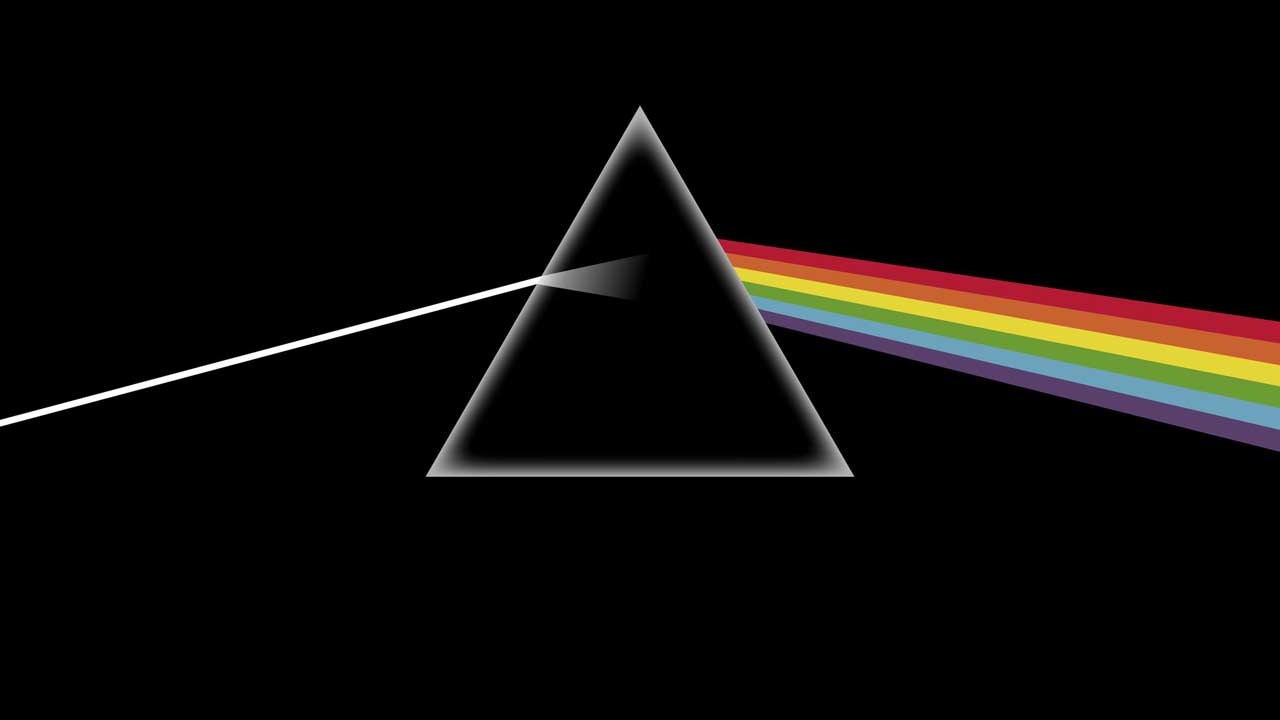Why you should definitely own Pink Floyd's The Dark Side Of The Moon
The Dark Side Of The Moon is one of rock's best-selling albums. Still don't have a copy? Prog magazine editor Jerry Ewing explains why you should change that

Beyond The Dark Side Of The Moon’s iconic sleeve image lies the richest of progressive rock tapestries: One that would spend over 18 years on America’s Billboard 200 chart shift an estimated 45 million copies.
And yet beyond anything else, it’s The Dark Side Of The Moon that made a whole new world aware of the prog rock phenomenon in a way that the obtuse time changes of Yes’s Tales From Topographic Oceans or the complex intensity of King Crimson’s Larks’ Tongues In Aspic (both released the same year) were never going to do.
Unremittingly bleak in its lyrical tone of alienation, paranoia and schizophrenia, all aided by the unsettling use of recordings of Pink Floyd’s own road crew pontificating on life, the universe and everything, The Dark Side Of The Moon was the musical apotheosis of everything that Floyd had attempted to that point.
True, it’s conceptual, yet all the individual pieces work alone as well as they do alongside each other. Has prog rock ever sounded quite as funky as Breathe or as witty as on the inward-looking sideswipe of Money? And how compelling could a piece of music be as Rick Wright’s The Great Gig In The Sky, with just a swooning non-lyrical female vocal to guide it?
Elsewhere, the great battle between Floyd’s two driving forces was in full swing. David Gilmour would never be so forward in the vocal department until Roger Waters’ mid-80s departure, yet his relaxed tone helps bring an uneasy calm to the choppy lyrical waters (no pun intended) and his fluid guitar playing helps entrench the sheer grandiosity of what the band wanted to achieve.
It starts with the faintest of heartbeats, yet climaxes with the ghost of long-departed founder Syd Barrett all over the slyly threatening Brain Damage and Eclipse. From here Waters would venture on a lone journey to reiterate his personal sense of inadequacy the others showed little interest in joining him on.
Earlier Floyd attempts like Atom Heart Mother and Meddle pale by comparison, and it’s little wonder Waters would later tell Classic Rock of their relationship that “after Dark Side Of The Moon it was always a problem”.
Sign up below to get the latest from Prog, plus exclusive special offers, direct to your inbox!
Musically Pink Floyd would remain a going concern for years, but in the glow of such considerable achievement at least some of their spirit was snuffed out.
Writer and broadcaster Jerry Ewing is the Editor of Prog Magazine which he founded for Future Publishing in 2009. He grew up in Sydney and began his writing career in London for Metal Forces magazine in 1989. He has since written for Metal Hammer, Maxim, Vox, Stuff and Bizarre magazines, among others. He created and edited Classic Rock Magazine for Dennis Publishing in 1998 and is the author of a variety of books on both music and sport, including Wonderous Stories; A Journey Through The Landscape Of Progressive Rock.

